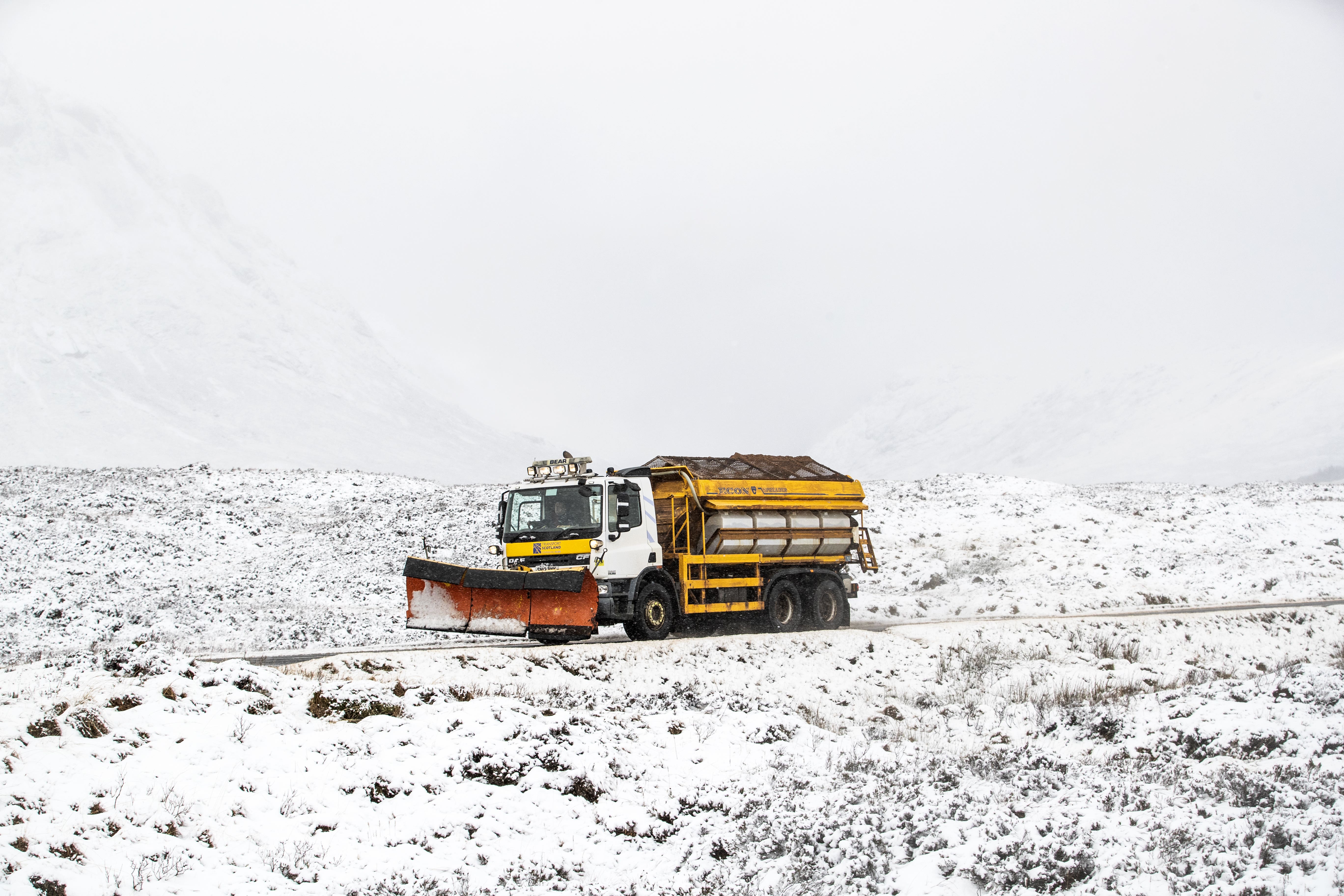Scotland set to shiver as Arctic air sweeps in with snow and ice warnings
Temperatures could drop below minus 10 degrees centigrade in northern parts of the country.

Your support helps us to tell the story
From reproductive rights to climate change to Big Tech, The Independent is on the ground when the story is developing. Whether it's investigating the financials of Elon Musk's pro-Trump PAC or producing our latest documentary, 'The A Word', which shines a light on the American women fighting for reproductive rights, we know how important it is to parse out the facts from the messaging.
At such a critical moment in US history, we need reporters on the ground. Your donation allows us to keep sending journalists to speak to both sides of the story.
The Independent is trusted by Americans across the entire political spectrum. And unlike many other quality news outlets, we choose not to lock Americans out of our reporting and analysis with paywalls. We believe quality journalism should be available to everyone, paid for by those who can afford it.
Your support makes all the difference.People in Scotland have been warned to expect snow and ice later this week as Arctic air sweeps in, with temperatures likely to drop below zero.
Overnight temperatures could plunge below minus 10C over higher ground and could hover not far above zero during the daytime.
The Met Office has issued yellow weather warnings of snow and ice for northern Scotland on Wednesday and Thursday.
It warns that 2-5cm of snow is possible at lower levels, with 5-10 cm above 200 metres, and said that drifting and blizzard conditions are likely in the strong northerly winds.
Met Office spokesman Oli Claydon said: “We could see temperatures of minus 10 (centigrade) and even lower in parts of Scotland, especially over higher ground where there is lying snow which can drive temperatures down.
“Even daytime temperatures will be struggling to stay above freezing in some places towards the end of the week.”
He added: “The air flow is coming from a northern direction and is bringing an Arctic maritime airmass which is bringing these cold conditions.”
Temperatures last dropped below minus 10 in Scotland in December 2020 when they fell to -10.2C in Dalwhinnie, in the Highlands, while in December 2017 a temperature of -13C was recorded in the same place.
The coldest December night on record was on December 30 1995 when the temperature fell to minus 27.2C at Altnaharra, also in the Highlands.
Scotland’s cities are likely to experience low temperatures by the end of the week, with Aberdeen, Glasgow and Edinburgh shivering at about 1C and 2C.
The weather warning covers Angus, Perth and Kinross, Aberdeen, Aberdeenshire, Moray, the Highlands, Western Isles, Orkney and Shetland and Argyll and Bute.
With temperatures falling, Age Scotland urged the public to check in on elderly neighbours, friends and relatives.
The charity warned that icy weather conditions can be especially dangerous for older people, who are at increased risks of falls and poor health – and with energy bills rising there are also concerns some older people maybe reluctant to turn up the heating.
Age Scotland head of policy and communications, Adam Stachura, said: “This winter is set to be an especially difficult one for hundreds of thousands of older people in Scotland, with the rising cost of living placing households under considerable pressure.
“Our 0800 12 44 222 helpline has already been hearing from an increasing number of older people struggling to heat their homes to a comfortable level, and this will really hit home as sub-zero temperatures begin to bite this week.
“We’re continuing to encourage every older person to make sure they are claiming all the social security support they are entitled to, particularly as claiming may make you eligible for future cost of living payments recently announced by the UK Government.”
He added: “There are steps we can all take to help those around us. It’s more important than ever to check in with your older relatives and neighbours.
“For instance, you could offer a hot meal, help with shopping, collecting prescriptions, or clearing and de-icing paths where needed, or just pop round or pick up the phone regularly for a chat.”